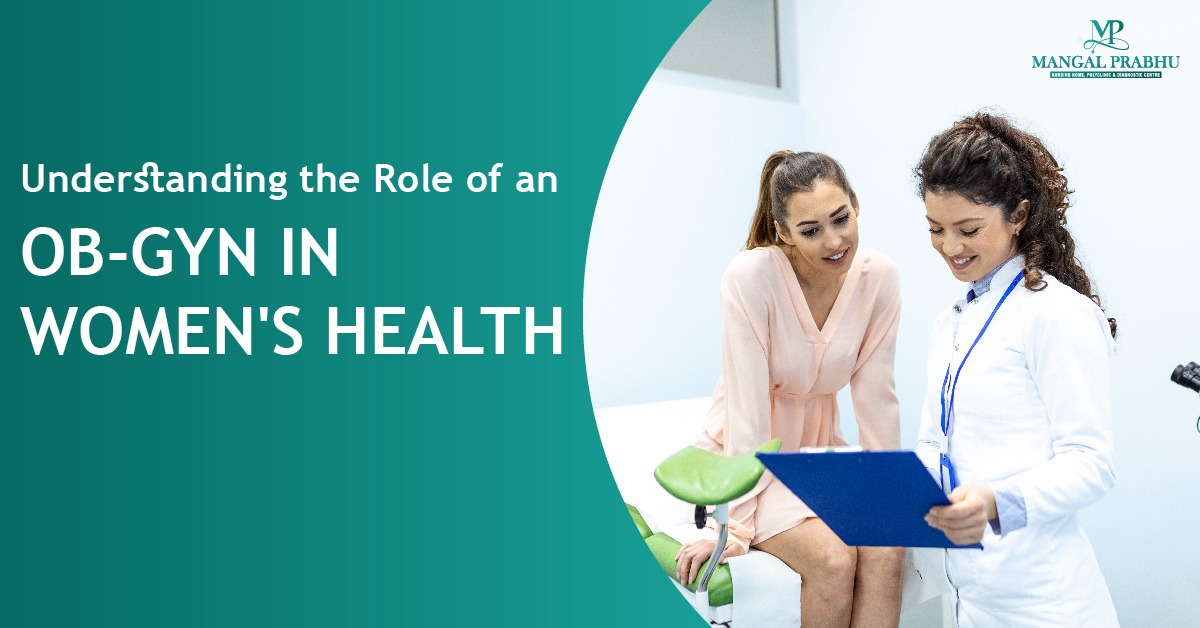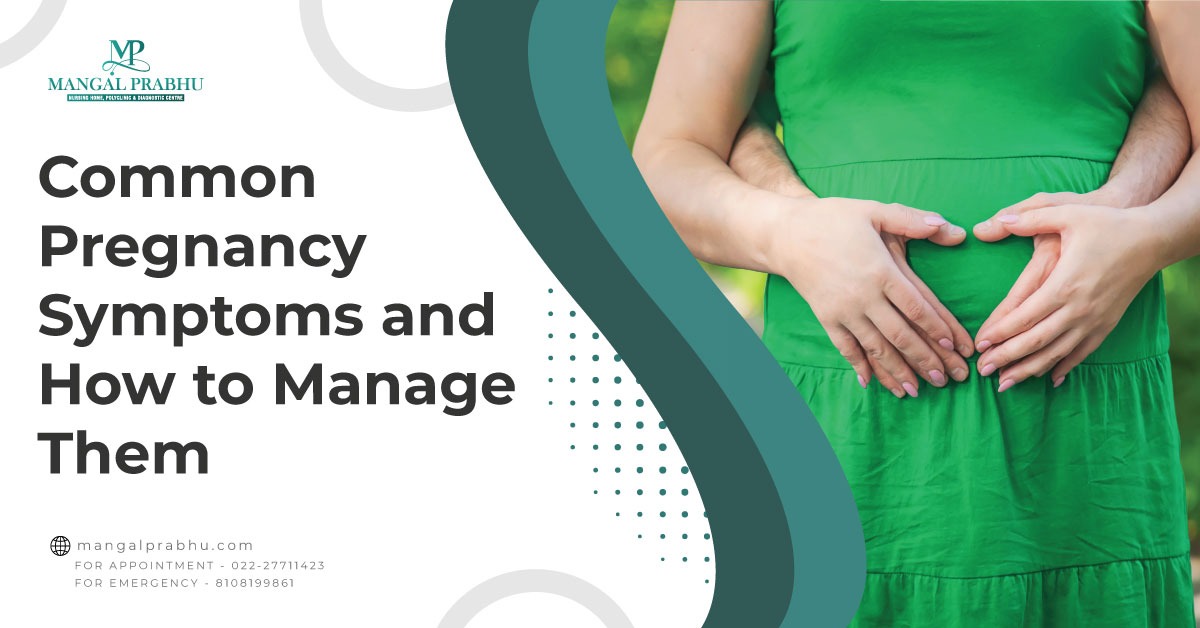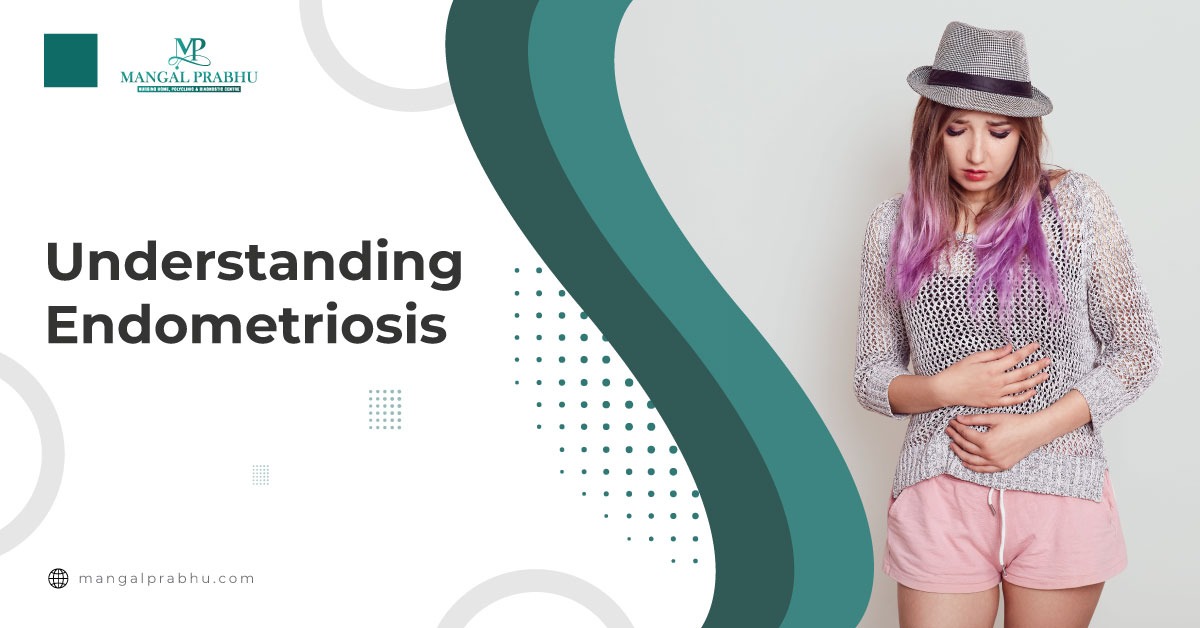
When to Consult a Doctor During Pregnancy?
The two colored lines on the pregnancy test can induce a lot of emotions in the mother-to-be. You might experience fear, excitement, and a whole lot of emotions. No matter whether the pregnancy was a surprise or planned, or if it’s your first or fourth child, having a healthy pregnancy is the ultimate goal of every parent. That’s what the pregnancy care hospital in Navi Mumbai helps you achieve. But when should you see a doctor? Well, the sooner the better.
Plus Sign on the Pregnancy Test
Each pregnancy is different and the level of care each woman needs during this phase is also different. Before you consult a doctor, take a pregnancy test at home. The ideal time to do that is when you have missed a period. Women who have PCOS or menstrual problems that result in missed periods should watch out for other signs of pregnancy, such as nausea and vomiting, backache, frequent urination, tender and painful breasts, food cravings, changes in smell and taste, etc.
An ideal time to detect a pregnancy is around the 8th week. The first week of your pregnancy is your last period. So, the first day of your last period is the starting date of your pregnancy and by the time you have missed your period, you are already four weeks pregnant. That’s because it’s not possible to identify when you conceived before your missed period.
Also Read: 10 Most Common Pregnancy Symptoms And How To Manage Them
Why Visit the Doctor Soon?
Obstetricians & gynecologists in Navi Mumbai advise pregnant women to see a doctor as soon as their home pregnancy test is positive. The gynecologist will check your due date to figure out how far along you are. They will see if there is any age or family-related risk factor or any possibility of complications that could pose pregnancy risk. They will recommend prenatal supplements, as well as different tests that confirm your pregnancy.
During pregnancy, the thick formation of the mucus plug is observed in your uterus. It closes your womb and prevents any bacteria or germs from entering the womb and harming your baby. It stays there until you near the delivery date. By six weeks, the doctor can hear your baby’s heartbeat.
Is It Too Late?
It’s better to see a doctor as soon as you take the pregnancy test. But it’s common for women to detect a pregnancy when they are 7-8 weeks pregnant. If you have diabetes, high blood pressure, or any medical condition that can make your pregnancy risky, it’s advisable to see a doctor earlier. Those with ectopic pregnancy, a history of miscarriage, and other pregnancy-related issues should keep in touch with a gynecologist. Some may also witness bleeding, which can indicate a complication.
You can switch doctors, but it’s best to have the same professional and team throughout your pregnancy. On your first visit, the doctor will confirm your pregnancy, check your family history, and ask about previous pregnancy-related complications. Take all your medical reports with you and share your medical history with the doctor.

Understanding the Role of an OB-GYN in Women’s Health
Fertility and issues related to women’s reproductive health are increasing at an alarming rate these days. But, innovative treatments have encouraged people to seek treatment and get better faster and without undergoing invasive procedures. That’s what the gynecologist and obstetricians in Navi Mumbai aim to achieve.
The Role of an OB-GYN
An OB-GYN specializes in women’s reproductive health and is qualified to handle pregnancy, infertility, menstruation-related, and other health conditions in women. These professionals diagnose, treat, and manage mild to critical illnesses relevant to pregnancies, childbirth, post-partum care, and more. From diagnosing complex medical issues to suggesting the most suitable treatment based on your health, an OB-GYN does it all.
Reproductive Health
Women’s reproductive system is pretty complex and undergoes a lot of changes as she ages. Protecting your reproductive system from infections and other illnesses should be your top priority.
Your menstrual cycle starts in your teens (earlier in some women) and last till 40-50. Women might experience a host of issues in their menstrual cycle. Excess bleeding, painful periods, blood clots, lower back pain, and irregular periods are a few.
For fertility-related problems, you can discuss your issues with a gynecologist at the pregnancy hospital in Navi Mumbai.
Preventative Care
OB-GYNs are trained and certified surgeons that can perform diagnoses, and surgery, and offer preventive care. Here’s what they offer.
- Routine Gynecological Exams
- Breast Exams and Mammograms
- STI Screening and treatment
- Vaccinations
- Fertility treatment
- Pap smears
A gynecologist will ask about your medical history and medical conditions in your family to determine your risk for infertility and other issues.
Also Read: 10 Most Common Pregnancy Symptoms And How To Manage Them
Diagnosis and Treatment of Conditions
OB-GYN can treat a vast array of conditions—gynecology and urinary issues. From common women’s health issues to urinary incontinence and pelvic floor disorders, a gynecologist can treat most gynecology-related conditions and urinary issues effectively. Not just mild conditions, but OB-GYN can detect and treat cancer in your reproductive organs.
Pregnancy and Childbirth Care
From planning a pregnancy to postpartum care, pregnancy is one of the most challenging periods in a woman’s life. Working with a certified gynecologist will help you navigate this difficult time effectively and ensure a safe and smooth pregnancy. Here’s how an OB-GYN helps women during pregnancy.
- Screening and ultrasound in all trimesters
- Preparing you for the delivery
- Conducting cesarean if needed
- Postpartum care
Menopause Management
Menopause brings a wide range of symptoms, including hot flashes, heavy periods, irregular periods, abdominal pain, and other forms of discomfort. Managing these symptoms can get really hectic. Sometimes, your OB-GYN recommends hormone replacement therapy to bring your hormone levels down to normal.
In addition, they might recommend non-hormonal medication and lifestyle changes to manage your menopausal symptoms.
Working with an OB-GYN
Developing a healthy relationship with an OB-GYN is necessary for women diagnosed with infertility, PCOS, endometriosis, fibroids, and other reproductive health-related illnesses. You should communicate your goals with the gynecologist and seek their advice for all gynec-related issues. Whether you are planning a pregnancy or need treatment for menopausal symptoms, they can help.

10 Most Common Pregnancy symptoms and how to manage them.
Pregnancy is an exciting time, but it can also come with a range of symptoms that can be uncomfortable or even painful. These symptoms can be caused by hormonal changes, changes in the body, and increased blood flow to the uterus.
According to one of the Gynaecologist in Navi Mumbai, here are some of the most common pregnancy symptoms and tips on how to manage them.
Most common pregnancy symptoms and tips on how to manage them:
1. Morning sickness:
Morning sickness is one of the most common symptoms of pregnancy. It usually occurs in the first trimester and can include nausea, vomiting, and fatigue. To manage morning sickness, it is important to eat small, frequent meals throughout the day, stay hydrated, and avoid foods that trigger nausea. Ginger and peppermint tea can also be helpful in easing nausea.
2. Fatigue:
Pregnancy can cause fatigue, especially in the first and third trimesters. To manage fatigue, it is important to prioritize rest and get plenty of sleep. Napping during the day and taking breaks when needed can also help.
3. Back Pain:
As the baby grows, it can put pressure on the lower back and cause pain. To manage back pain, it is important to maintain good posture, avoid standing or sitting for long periods of time, and use a pregnancy pillow for support when sleeping.
4. Constipation:
Hormonal changes during pregnancy can slow down digestion, leading to constipation. To manage constipation, it is important to drink plenty of water, eat fiber-rich foods, and stay physically active.
5. Swelling:
Pregnancy can cause swelling in the hands, feet, and legs. To manage swelling, it is important to stay hydrated, rest with your feet elevated, and wear comfortable supportive shoes.
Also Read: Breastfeeding And Your Sleep- How Do You Rest When The Baby Needs You All The Time?
6. Heartburn:
Hormonal changes during pregnancy can cause heartburn and acid reflux. To manage heartburn, it is important to eat smaller, more frequent meals, avoid spicy or acidic foods, and avoid lying down immediately after eating.
7. Mood swings:
Hormonal changes during pregnancy can cause mood swings and anxiety. To manage mood swings, it is important to practice self-care, prioritize rest and relaxation, and talk to a healthcare provider if symptoms persist.
8. Varicose veins:
Pregnancy can cause varicose veins, which are swollen veins in the legs. To manage varicose veins, it is important to stay physically active, avoid standing or sitting for long periods of time, and wear compression stockings.
9. Braxton Hicks contractions:
Braxton Hicks contractions are common in the third trimester and can feel like mild cramping or tightening of the uterus. To manage Braxton Hicks contractions, it is important to stay hydrated, rest when needed, and practice relaxation techniques like deep breathing.
10. Stretch marks:
As the baby grows, the skin can stretch and cause stretch marks. To manage stretch marks, it is important to stay hydrated, use a moisturizing lotion or oil, and wear clothing that is comfortable and not too tight.
Conclusion:
In conclusion, pregnancy can come with a range of symptoms that can be uncomfortable or even painful. However, with proper management and care, many of these symptoms can be minimized or eliminated. It is important to talk to a healthcare provider if you have any concerns or symptoms that persist.
A lot of people may be concerned with the expenses that come with healthcare needs, especially for pregnant women but there are centers now that are budget-friendly, an affordable pregnancy hospital in Navi Mumbai is known for efficient and advanced care with the moderate expense.
With the right care and support, pregnancy can be a happy and healthy experience for both you and your baby

Understanding Endometriosis, Causes & complications
Understanding Endometriosis
Endometriosis is a painful medical condition in which the tissues forming the lining of your uterus grow outside the uterus, i.e. either within the pelvic area or outside that. It makes your periods painful and can also lead to fertility issues in women.
These tissues are called the endometrium. Between every menstrual cycle, these tissues grow surrounding the wall of your uterus and shed if you don’t conceive. The same endometrium-like tissues can grow in other parts of your body, including your abdomen and chest. If you notice the below-listed symptoms of endometriosis, contact a gynecologist in Juinagar, Navi Mumbai for treatment.
Causes and Symptoms of Endometriosis
The main cause of endometriosis is still unknown, but researchers believe there’s a genetic connection. If your mother, grandmother, or other females from your family have a history of endometriosis, talk to your gynecologist about your risk. People also link it to the defect in your ovaries, fallopian tubes, and other pelvic organs.
A common symptom of endometriosis is mild or severe pain in your lower abdomen or lower back. Some women may not experience any symptoms at all, which explains why endometriosis is often left undetected in most cases. Here’s what you might experience.
- Extreme pain in your abdomen
- Abdominal pain during or before periods
- Painful sexual intercourse
- Extreme bleeding
- Infertility
The symptoms may vary from one person to another. Some people might experience extreme pain, while others may have no pain at all (despite the severity of the condition). Some might also experience pain in bowel movements during periods.
Treatment for Endometriosis
Your gynecologist will ask about your future pregnancy plans, age, and the severity of the condition to determine the most suitable treatment for endometriosis. The doctor might prescribe pain medication to relieve your symptoms, although that isn’t a permanent cure for endometriosis. Or, they might recommend hormonal therapy.
The best treatment for endometriosis is laparoscopic myomectomy surgery in Navi Mumbai with medications. However, endometriosis is a chronic condition that might return a few years after the surgery. How soon it returns depends on the severity of the disease.
So, consult your healthcare provider about the risk of its recurrence. Myomectomy is suitable for people with pregnancy plans for the future. If you are not planning any pregnancy, you can get laparoscopic hysterectomy surgery in Navi Mumbai for complete relief.
Complications of Endometriosis
Endometrial tissues that grow outside your uterus can lead to adhesions and scar tissues. This can make your period pain worse over time. Some women with endometriosis might experience fertility issues. There’s a possibility that endometriosis might disappear over time and the lesions and scar tissues that formed due to the endometrial lining can get smaller. This mostly happens when the level of estrogen in your body drops.
It’s best to discuss your health goals with a healthcare provider and work with them to manage endometriosis and its symptoms. Although it’s not a medical emergency, the condition can cause unbearable pain and complications like your pelvic organs sticking to each other or scar tissue formation. These symptoms can get unmanageable.

Breastfeeding And Your Sleep- How Do You Rest When The Baby Needs You All The Time?
Breastfeeding is a beautiful thing. It’s hard work, yes, but it’s also incredibly rewarding. Breastfeeding can make you feel amazing and help your body in so many ways, but there may be times when you feel like you’re doing everything right and still not getting enough sleep. Here are some tips for finding restful sleep while breastfeeding:
Tips for getting more sleep by gynecologist in Navi Mumbai:
- Try to go to bed each night at the same time.
- Have a relaxing bedtime routine, including reading books or listening to music before going to sleep, taking deep breaths while lying down and focusing on your breathing, keeping your room dark, and making sure there are no distractions like electronics and/or pets nearby that could disrupt sleep, such as televisions or phones ringing. If you’re not comfortable with this step, then try using an alarm clock instead of relying on the sun rising so that you can sleep through the night without having any interruptions from outside noise sources like traffic noise, which may wake them up during nap periods when they need the most restful rest breaks after lunchtime meals!
- Avoid caffeine after 2 pm because this makes people feel wired later in the afternoon, which interferes with falling asleep easily.
Most importantly, rest when and how you can!
When you’re breastfeeding, it can be difficult to get enough sleep. Your baby needs you all the time! But if you are getting a good night’s rest and still feel like you have so much energy, then try some of these tips:
- Try to get some sleep when the baby sleeps. They usually fall asleep around 7 pm or 8 pm and wake up around 6 am or 7 am (usually earlier if they suckle more). This means that you’ll usually have about 2 hours before your next feeding is due – this gives time for naps as well!
- If possible, try not to take naps during your breastfeeding times because this will affect how long both parties have left in bed together before their next feeding session begins again, which could lead them into exhaustion mode faster than normal (but don’t worry too much about this one).
Everybody is different, but these tips may help you find the right solution for your needs.
If anything is bothering your sleep at night, talk to your doctor about it so that they can help diagnose the problem and make sure that there isn’t anything more serious going on in your eyes or balance system.
We hope you found these tips helpful! We know it’s not easy to find the right balance between rest and breastfeeding, but we all have to find our own way. Any prob
